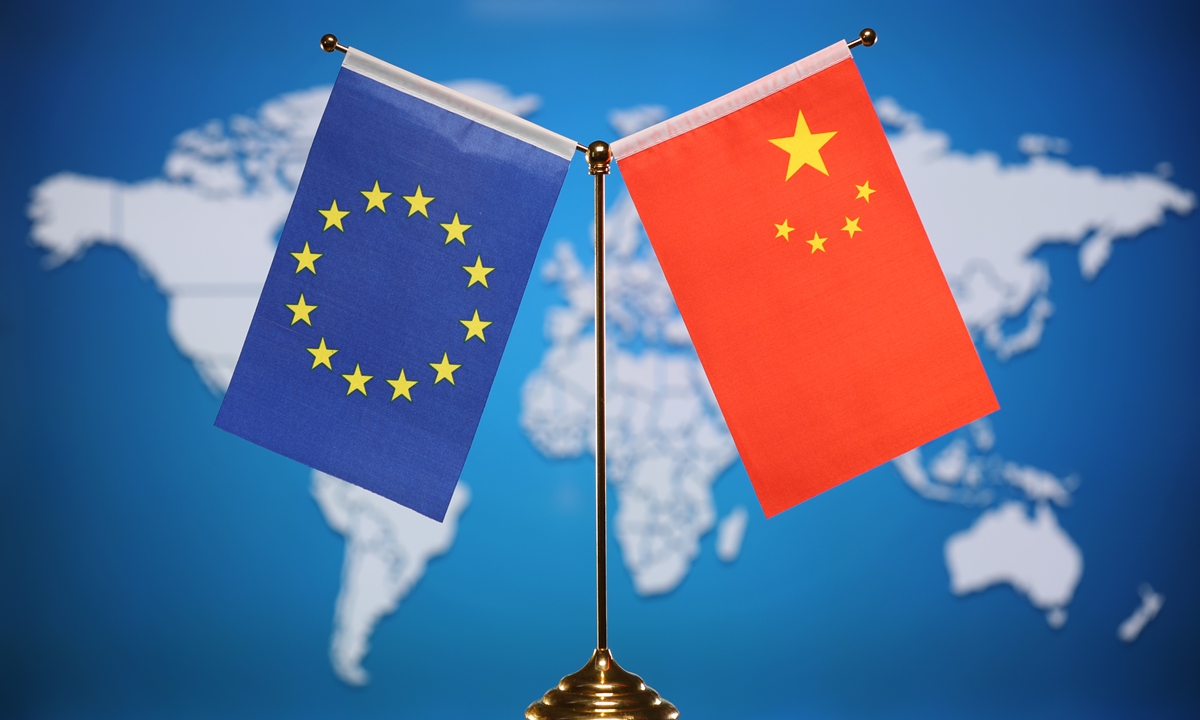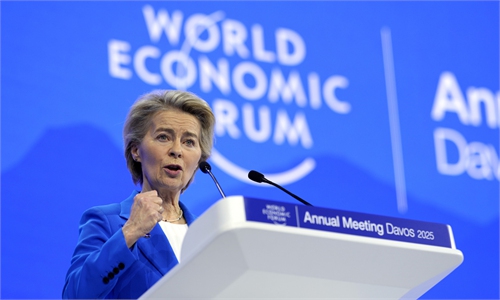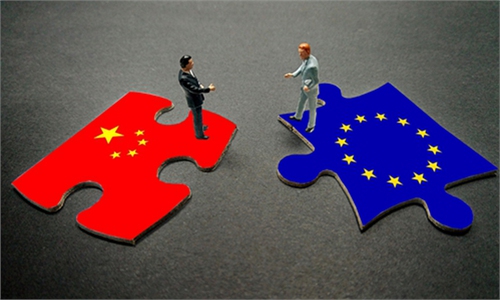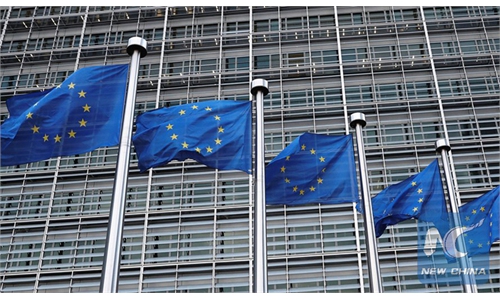European officials visit China amid global turbulence; both sides pursuing ‘greater consensus’: expert

China EU photo:VCG
Several European officials visited China in recent days, including French Foreign Minister Jean-Noel Barrot and European Commissioner for Trade and Economic Security Maros Sefcovic, and more will reportedly visit China soon, highlighting growing interactions between China and the EU amid turbulence in the global situation.
In response to a question about details of Barrot's visit, Chinese Foreign Ministry spokesperson Guo Jiakun said on Friday that the two sides had in-depth communication on China-France and China-EU relations as well as international and regional issues of mutual interest, and various mutual understandings were reached.
"In the current international landscape brimming with changes and turbulence, the two countries maintain close communication and cooperation, which is in the interests of the two countries and conducive to the sound development of China-EU relations and world peace and stability," Guo said.
Premier Li Qiang met with Barrot. Foreign Minister Wang Yi and Barrot had talks and jointly met the press, according to Guo. Both sides shared the view that facing profound changes in the international landscape, as comprehensive strategic partners, China and France need to display a sense of mission, stay committed to multilateralism, dialogue, coordination and mutual benefit, oppose unilateralism, bloc confrontation, decoupling and supply chains disruption, and demonstrate a new sense of commitment in the next 60 years of bilateral relations, the spokesperson said.
On Thursday, Chinese Vice Premier He Lifeng met with Sefcovic in Beijing. During the meeting, He said that China is willing to work with the EU to strengthen dialogue and exchange, handle economic and trade differences in the proper manner, expand mutual openness, and promote the healthy, stable development of China-EU economic and trade relations, according to Xinhua.
In addition to the French foreign minister and the EU trade chief, Italy's Senate President Ignazio La Russa and Portugal's Minister of State and Foreign Affairs Paulo Rangel also visited China this week. Meanwhile, Spanish Prime Minister Pedro Sanchez is also scheduled to visit China in April, according to Reuters.
The visits come as the world is facing growing turbulence amid major policy shifts from the US government. They also come amid growing division and tension between the EU and the US over the Ukraine crisis and the US' tariffs.
Against this backdrop, Europe's need for China's role in security and development is growing, Cui Hongjian, professor of the Academy of Regional and Global Governance at Beijing Foreign Studies University, told the Global Times on Friday.
"Both sides are pursuing greater consensus and fresh avenues for collaboration," he said, adding that through increased dialogues and engagement, China can build consensus with more European nations, and help Europe reach more positive consensuses, especially on issues related to China. "In the current changing situation, more dialogue and communication between Europe and China is also valuable for Europe to explore strategic autonomy."
There are some positive signals from the EU toward China. For instance, in February, European Commission President Ursula von der Leyen said that she believes the EU and China can find agreements that could even expand trade and investment ties. The European Parliament has lifted restrictions on EU lawmakers meeting some Chinese officials, according to a report from the South China Morning Post in March.
"Europe has sent some positive signals recently - whether it is emphasizing cooperation with China or some institutions lifting restrictions on China. Compared with the past few years, there is an opportunity for improvement between China and Europe," Cui said, while noting that Europe's internal stance on China remains uncoordinated, with some hawkish voices remaining.




